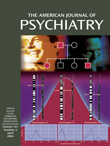Reviewing textbooks is a somewhat different task from reviewing books that are focused explorations of specific topics; textbook chapters may vary considerably in their clarity and quality, especially if they are multiauthored. Textbooks also compete with each other in a much more direct way than do other books about psychiatry. I took it as my task both to describe this new entry and to make some comparisons with other available texts. For those who like the bottom line first, I think Theory and Practice of Psychiatry is a remarkable achievement.
Perhaps the most remarkable aspect of this work is that it is a single-authored comprehensive textbook of general psychiatry. Dr. Cohen, an award-winning teacher, is Director of the Consultation/Liaison, ECT, and Forensic Psychiatry Services at the University of Virginia. The chapters were first written in conjunction with lectures given to medical students, and Dr. Cohen notes that he aimed to “maintain a conversational tone throughout.” He has succeeded, so much so that his stated goal—that students might read this text from “from cover to cover”—is in no way ridiculous. Each chapter has clear exposition and organization. Another, and quite unusual, aspect of this text is that it incorporates a theoretical approach to psychiatry, a “conceptual scaffolding,” with the theorists acknowledged to be Paul McHugh and Phillip Slavney of Johns Hopkins University and the concepts put forth in their book
The Perspectives of Psychiatry (1).
Although the four perspectives of the Johns Hopkins theorists are very well described in the early chapters of this text, they do not in any way dominate it. In fact, the 20 chapters are quite similar to those in other textbooks: 12 follow DSM-IV categories, two are on evaluation, and four are on special topics (suicide, violence, psychotherapy, and forensic psychiatry). Two chapters review the perspectives, and one, “Clinical Neurobiology From Multiple Perspectives,” is an excellent description of neuroanatomical and neurochemical systems involved in psychiatric disorders. This was one of the chapters that made me agree with Gary Tucker, who is quoted on the cover as stating, “This is the best single-authored text for medical students I have read. In fact, I would be happy if residents knew all that was in this book.” There are few frills. The text is in black and white, with no photographs, but there are many very useful tables and figures.
The strengths of this text far outweigh its weaknesses. I have already commented that it is clearly written and appropriately broad in the topics it covers. I also expect a text to be 1) thorough, detailed, and accurate on the topics it addresses, 2) up-to-date, 3) useful, both by itself and as a guide to the primary literature, and 4) well reasoned in its judgments and recommendations. To evaluate these criteria, I developed a scoring system that counted what I consider to be excellent, accurate inclusions against those I considered questionable, incomplete, or wrong. Although I believe there are a few of the latter, the former absolutely overwhelmed them; this is a book filled with information about psychiatric disorders that is supported by recent research studies.
Considerable space is devoted to the discussion of treatment, and not only first-line treatments. For example, there is a two-page discussion of monoamine oxidase inhibitors and a table indicating foods that should be avoided when taking them. This is an example of the usefulness of the text. Another example is the eight-page discussion of attention deficit hyperactivity disorder (ADHD), which includes almost the complete report of the Council on Scientific Affairs of the American Medical Association on ADHD, a convincing argument against the many critiques of stimulant treatment of this disorder. This report could be reviewed with teachers and parents. The one deficit in potential usefulness of the book is the lack of specific references listed in the text itself. There is a good bibliography at the end of each chapter, but it is not clear which of these articles relates to assertions made in the text.
Should you or those you teach buy this book? I am certainly pleased to welcome it into my library. However, to answer this question one must look at the competition.
Theory and Practice of Psychiatry is not meant to compete with the large and expensive textbooks edited by Hales and Yudofsky produced by American Psychiatric Publishing
(2,
3) or
Kaplan and Sadock’s Comprehensive Textbook of Psychiatry (4). It does compete with four others, which, according to Amazon.com figures, rank in this order of sales:
Kaplan and Sadock’s Synopsis of Psychiatry (5), Andreasen and Black’s
Introductory Textbook of Psychiatry (6), Cutler and Marcus’s
Psychiatry (7), and Hales and Yudofsky’s
Essentials of Clinical Psychiatry (8). Cohen’s book is less expensive than all these others except Cutler and Marcus’s, a matter of concern to residents and medical students. It is also much shorter than the
Synopsis, which is 1,500 pages. Is brevity a virtue? It could be, as long as essential elements are not lacking, since medical students and residents often complain about a lack of time to read in addition to a lack of funds.
In my mind, the book this resembles most is the textbook by the editor-in-chief of the Journal, Nancy Andreasen, and Donald Black. There are major differences, however. Cohen incorporates the perspectives developed at Johns Hopkins, and he has much more on psychiatric medications; Andreasen and Black give much more emphasis to phenomenology, as befits the descendants of Eli Robins and George Winokur of Washington University and the University of Iowa.
In summary, I will again state that Theory and Practice of Psychiatry is a remarkable achievement. I express my profound admiration for Dr. Cohen for having, on his own, mastered so much of the psychiatric literature and summarized it in this book so clearly.

